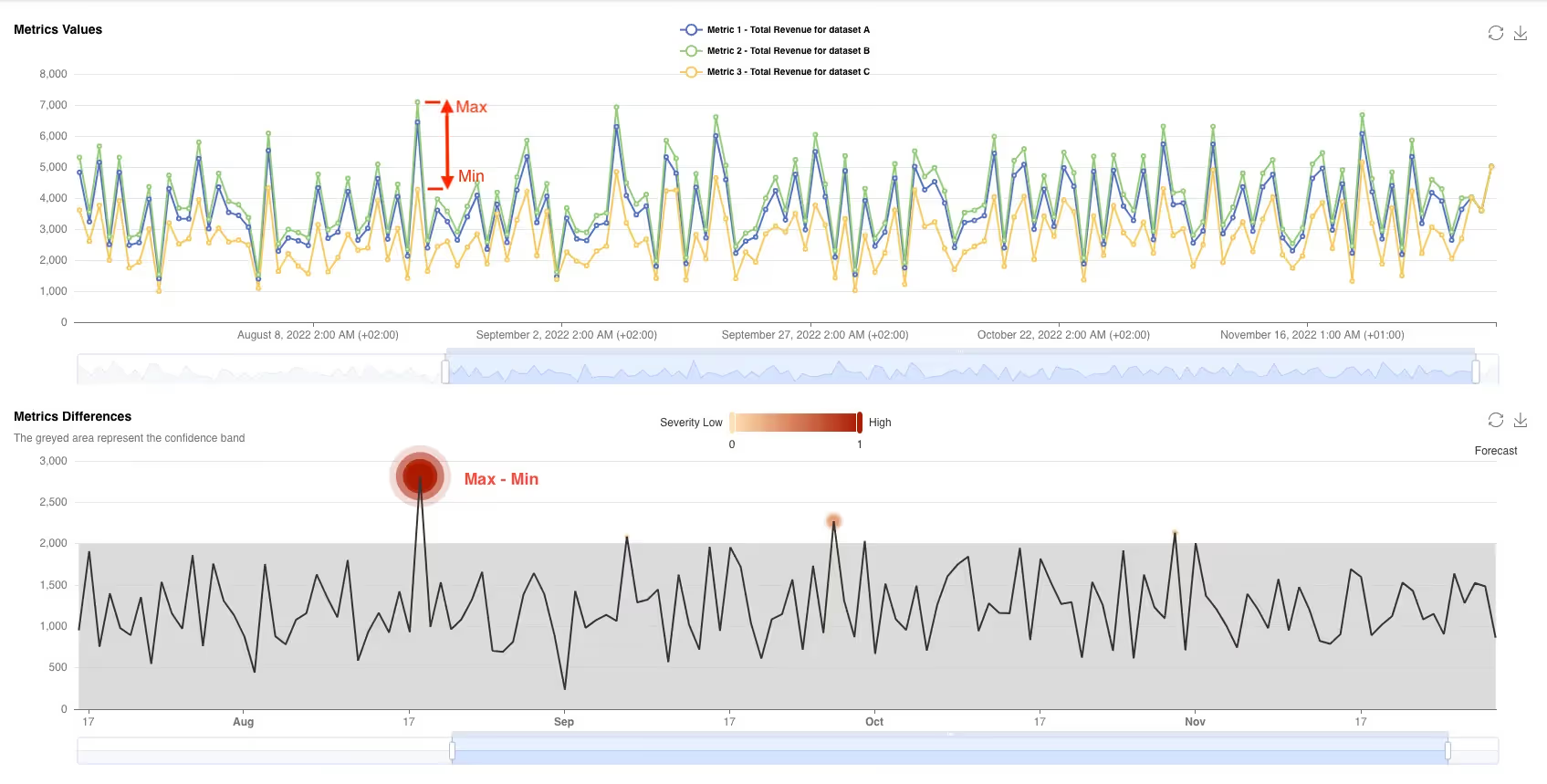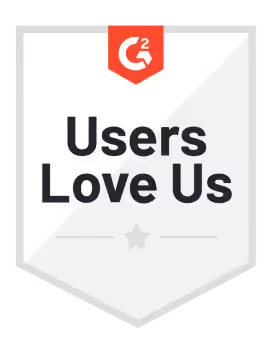AI continues to reshape industries and the demand for reliable data observability tools has surged. In a recent ICONIQ study, 50% of respondents noted that they are procuring data observability infrastructure in tandem with generative AI models. For companies looking to harness the full power of AI, clean, reliable, and well-understood data is paramount.
The Role of Data Observability in AI
AI and data observability are deeply interconnected. High-quality, reliable data is essential for AI models to generate meaningful and accurate insights. Without proper data observability, businesses risk feeding their AI systems with inconsistent, biased, or outdated data, which can lead to faulty or skewed results. Sifflet addresses these challenges by ensuring that AI applications are powered by clean, accurate, and up-to-date data, providing confidence in AI outputs while maintaining strong data governance practices.
7 Reasons to Choose Sifflet for AI-Powered Organizations
1. AI’s Need for Data Health Monitoring in Pipelines
AI and machine learning models often require accurate and timely data for real-time decision-making applications like fraud detection or personalized recommendations. While Sifflet’s monitors are typically scheduled, developers can easily leverage Sifflet’s APIs to run monitors on demand, allowing them to incorporate real-time data quality checks into their data pipelines. This flexibility ensures that AI models are working with the most up-to-date data, enabling them to generate reliable insights and predictions when it matters most. For more information, check out how to run a rule execution via API here.
2. Data Drift Detection for AI Model Integrity
AI models are particularly sensitive to data drift—the phenomenon where statistical properties of the input data change over time, leading to degraded model performance. Sifflet’s ability to detect subtle changes in data distribution helps businesses mitigate the risks of data drift, ensuring their AI models maintain accuracy and performance over time. For more information, check out how Sifflet monitors distribution changes here.

3. Enabling Faster AI Experimentation Cycles
One of the most overlooked challenges for AI teams is the ability to iterate quickly. If the underlying data quality is poor or unknown, development cycles slow down, as engineers must investigate and clean the data manually. Sifflet’s automatic monitoring and deep data quality insights allow AI teams to experiment and iterate faster, reducing downtime caused by bad data, which accelerates time-to-market for AI solutions.
Additionally, with Sifflet’s release of dbt Impact Analysis Actions for GitHub and GitLab, developers building pipelines using dbt can now immediately see the impact their changes have on downstream assets, including AI models. This instant feedback empowers teams to understand and mitigate any risks introduced by changes, ensuring that AI models continue to function smoothly and accurately without lengthy debugging cycles.
4. AI Compliance and Regulatory Benefits
With increasing global regulation around AI, such as GDPR, the AI Act in Europe, traceability and accountability are becoming core requirements for AI deployments. Sifflet’s field-level lineage and comprehensive data tracking are crucial for organizations needing to demonstrate where their AI data comes from, how it is processed, and how transformations align with regulatory requirements. This is particularly useful in regulated industries like finance or healthcare, where AI models must comply with strict data governance guidelines.
As AI models increasingly rely on emerging technologies and evolving ecosystems, traditional observability tools may struggle to keep pace with changes in data lineage. Sifflet’s Universal Integration API—its declarative lineage feature—fills this gap by allowing organizations to track and merge lineage across diverse platforms. Even as technologies shift, Universal Integration ensures that businesses can maintain visibility into where their AI data originates, providing the transparency necessary to meet both regulatory and operational standards. For a deeper dive into how easily you can declare lineage in Sifflet, check out our blog post on Airbyte integration here.
5. AI and Sifflet’s Scalability
AI models, especially those used in natural language processing or image generation, often involve large-scale datasets that change and grow over time. Sifflet’s ability to scale observability across massive, distributed data systems ensures that as your AI models scale, your data observability scales with it. Built using cloud-native technologies, the Sifflet platform itself is designed for infinite scalability, adapting seamlessly to your growing data ecosystem. Whether you're managing terabytes or petabytes of data, Sifflet can keep pace, ensuring data quality and reliability at every stage of growth.
6. Reducing AI Bias Through Transparent Data Observability
One underappreciated benefit of having a powerful data observability platform like Sifflet is in addressing AI model bias. Many biases in AI models stem from underlying biases in the data. With Sifflet, AI teams can more easily track, assess, and verify data sources to reduce the risk of introducing or perpetuating biases. By understanding the lineage and quality of datasets, Sifflet allows organizations to build fairer, more reliable AI systems.
7. Data Privacy: Minimization and Anonymization
Data privacy is becoming increasingly critical, highlighted by global regulations like GDPR and CCPA, as well as the proposed AI Bill of Rights from the White House, which emphasizes the protection of personal data in AI systems. One key privacy technique is data minimization, ensuring that only essential data is collected and used. Sifflet’s correlation monitor supports this by identifying highly correlated metrics, helping minimize unnecessary data usage. You can learn more about the correlated metrics monitor here.
For data anonymization, Sifflet provides several features that help ensure compliance with privacy laws. Sifflet has built-in rules to classify Personally Identifiable Information (PII), and its regex monitors assist in enforcing data governance practices. Additionally, users can leverage custom SQL monitors, where they have the option to write custom SQL using natural language. Sifflet’s AI assistant will generate the SQL for them, providing flexibility and ease in implementing privacy checks. Sifflet also offers visibility into the SQL used to generate datasets and apply transformations, allowing organizations to verify that data has been anonymized according to specification.
By leveraging these capabilities, Sifflet ensures that data privacy requirements are upheld while providing the observability necessary for AI models to function with secure, compliant datasets.

Beyond the Basics: Additional Benefits of Sifflet
- Enhanced Collaboration: Sifflet fosters collaboration between data teams and AI engineers by providing a shared understanding of data quality and reliability.
- Improved Data Governance: By ensuring data quality and compliance, Sifflet helps organizations establish strong data governance practices.
- Risk Mitigation: Sifflet helps identify and mitigate potential risks associated with data quality issues, such as inaccurate predictions or regulatory fines.
- Increased Trust in AI: By demonstrating data integrity and transparency, Sifflet helps build trust in AI systems among stakeholders.
Conclusion
In an AI-driven world, data observability is key to ensuring the integrity, privacy, and performance of AI models. Sifflet’s scalable, cloud-native platform offers powerful features like real-time monitoring via APIs, predictive analytics, and field-level lineage, enabling faster AI experimentation and greater transparency. With advanced capabilities for data minimization, anonymization, and privacy checks—supported by correlation monitors, regex, and custom SQL monitors powered by an AI assistant—Sifflet helps organizations maintain data compliance with regulations.
By choosing Sifflet, organizations can confidently build AI systems on high-quality, privacy-compliant data while maintaining agility in a rapidly evolving data landscape.

















-p-500.png)
